Dear TV Execs, a Show About Incest Could Be So Hot
I didn’t watch it for years, The Handmaid’s Tale—on account of all the rape. I spent enough of my days in rape, through full-body flashbacks. But they’ve tapered down after years of relentless therapy, and having started to watch the series, my main feeling is, impressed: People want to watch a show with this much rape?
Well, exciting news, then, that there’s a great wealth of untapped material in the lives of incest survivors! We untold legion, more than a third of the 60 million Americans who’ve survived child sex abuse, plenty of us were trapped in houses of captive rape. The costuming wouldn’t be as dramatic, but there is abundant opportunity for cool vintage looks (’80s and ’90s = so hot right now), and I, like plenty of others, did wear a Catholic school uniform (also hot) every weekday for many torture-filled years.
There would be less crying, too, which is also less dramatic. The handmaids cry a lot, by the standards of sex-abuse survivors I know, who learned very early not to do that, but maybe it’s different when you don’t become a sex slave until you’re an adult. When I was five, I broke my arm, and my parents didn’t take me to the hospital for days despite my inability to move it; I used my other arm to hold it against my body, still, silently. They stood over my bed at night as I slept in a fever, watching me and arguing. “She”—[sic]—“isn’t even crying,” my dad said. Recounting this decades later, my mother said, sounding far away: “And he was right. You weren’t.”
When she finally snuck me to the doctor’s while he was at work, they ordered major surgery.
Would people watch a show in which a child failed to cry while being mounted by an adult relative over and over and over? Where a once-a-month rape ceremony would be a merciful schedule compared to the endless, any-given-time terror of parental sexual assault? Would it make it more watchable, or less, that the chances viewers have encountered a kid who really lives like this are high? People did love Precious, but the perpetrators were astonishingly—unbelievably, I’d argue—unlikeable, and Black, and maybe it’s less palatable to see good-looking white family men climb on top of their children. Or maybe, if the apparently attractive degree of horror in Handmaid’s is any indication, that would make it even better. More shocking in a racist, white supremacist way.
Would it even be legal to film this with an actual child? Would it be ethical? Would the child have to be CGI? Would watching it count as illegal porn consumption? Would watchers be gripped, holding their breaths, as they viewed the child try afterward, every morning, to function through a regular day of kindergarten? Would it be unwatchable? Too real? Too far? Would it be too watchable, based on the volume and popularity of mainstream stepmom/stepsister/stepdaughter porn? Would any child actor be able to convey the weight of sitting in a classroom trying both to not say anything—and to say anything—while cutting a black cat out of construction paper with safety scissors on Halloween? Would it be unforgivable to ask a child actor to even try?
Most people who sexually abuse children are otherwise very nice people.
I have a precise vision of the TV show I’d write about what it was like to be in kindergarten, for me, for other people who were being—who are being, currently—raped in their houses as children. It would follow a five-year-old in their stuffy little school classroom (soundtrack: overhead fluorescent-light hum) with industrial carpet and painted cinderblock walls. The child would be quiet and always watching, a bit overwatching, the other kids talking and sharing and having this inexplicable bodily ease that, to our protagonist, doesn’t make any sense. The child would watch their teacher and teaching assistant for signs that they are ladies who might believe or act. They would search for signs that these adults might ask the right questions to help this child disclose what they have absolutely no idea how to say. Dramatized, it would probably entail the child envisioning variations of how such an exchange might go, as they sat at their little communal kids’ table, but ultimately never getting up to initiate it.
Then they would go home and color. It’d be a small house, carpet again (but nicer than the flatweave at school), lots of stuff but little cohesive decoration, a house more like a real house than the overdesigned places on TV. The child would try to play with their older sibling, who would be, in the way older siblings can be, unkind. Their mom would be sort of the Rita of the house, if you’re a Handmaid’s fan, not super interactive but putting down bowls of food at appointed times, and when it was getting dark, the dad would come home wearing a suit.
I always picture him played by Steve Carell. He feels like America’s friendly white dad, non-evil-seeming, and that’s exactly why. The vast majority of child sex abusers are people the children know, which is to say, people their families know, if not members of their own families. Which is to say: Most people who sexually abuse children are nice people. And that is the thing people need to understand if the culture is ever going to develop any real awareness, let alone action, about sexual abuse. Like Steve Carell, people who rape children don’t live in vans or under bridges. They can be talented, or nice, or nice-looking. They are often smart or charming or both, and that doesn’t disqualify someone from being capable of violence. If it were possible to actually roll your eyes out of your head, I’d have lost mine while reading a New York Times profile of Larry David in 2020. “Yeah, it’s pretty great, it’s a fantastic book, so funny,” he says of Woody Allen’s memoir. “[I]t’s just a great book and it’s hard to walk away after reading that book thinking that this guy did anything wrong.”
Here’s the list of non-rape things child-rapists are capable of: Literally all things. Famously: coaching winning football teams, doctoring Olympic athletes, doctoring college athletes, writing great party anthems, directing great films, having a sense of humor. Pastoring churches. Despite all persistent, high-profile evidence and mountains of data proving otherwise, people still think child-sex-abusers are some sort of trolls they both can’t imagine and would know for sure if they saw. But people who rape children are not monsters. They are just people. People who, statically speaking, you’ve almost certainly stood next to in a grocery store or played cards with or encountered or befriended or had over for Thanksgiving at some point.
Get into it! Relish all the scandalized hot goss that could be generated by suspecting your neighbors and loved ones. The weirdly pervasive and demonstrably bogus myth that no one you know is or could be raping a kid is one of the biggest impediments to people not taking victims, or survivors—or their own instincts—seriously. In the same Sunday paper that contained that stupid Larry David quote, there was a story about a Bay Area high school tennis coach (BUT HE WAS GOOD AT IT) who got fired after several kids reported he molested them. Though he had admitted to statutory rape on tape as well, parents still advocated for him to get his job back. He has since been (re)arrested and tried, for molesting yet more students. He’s currently serving 255 years to life in prison.
Like I say: the scandal! The delicious horror! If people like watching The Handmaid’s Tale, they’ll love the relentless atrocity of incest. It’s inherently sensational—the captivity, the unpredictability, the so much more than once-a-month rape. The unbelievable ignorance and inaction of bystanders. The unceasing, now-it’s-creepy-because-you-know charm of Steve Carell. The crushing loneliness. The struggle of not knowing how to commit suicide—it’s not with safety scissors, and as much as this kid wants to drown in a nearby Great Lake, he unfortunately can swim—while simultaneously being told at church that suicide is unforgivable. The incest survivor’s world, like the handmaids’, is utterly devoid of sanctuary. Season two’s juicy, extra-dystopian turn could be that after finally telling someone and getting taken seriously enough to be removed from Steve Carell’s custody—we’ll take some dramatic license there—the child is put into foster care, only to enter yet another house (or whole series of houses!) headed by a rapist, thereby cementing in their developing brain that the world is, and is only, an unending rape-scape. No matter where the child goes, we can write in the varied but pure, shocking vitriol of the things perpetrators whisper to children to further break them down (admit it: You’re curious for some specifics) and the sheer unfairness of the fight, tiny person versus grown one—even when it’s gentle, which it is sometimes, always dangerous, crushing, smothering. Wherever the child goes, he’ll encounter the absurdly unlevel playing field of a person with power and agency versus a person with none, also minus fully developed language skills and bones.
There’s the opportunity for a particularly grim plot twist if the pandemic were introduced into the storyline. I thought about it, during lockdown, that while I was reading the aforementioned “Larry David, Master of His Quarantine,” kids who were being raped within their families suddenly had no reprieve from their sex-torture prisons at all. No school, no work: locked indoors with their perpetrators 100 percent of the time. Because I hadn’t yet left the industry, I pitched an op-ed to my Times contacts addressing this in response to Larry David’s idiocy, but they weren’t interested.
So here’s my TV pitch: People love Handmaid’s because it exaggerates a truth we’re collectively trying to ignore—the world actually is a patriarchal rape-scape!—and a massive amount of high sexual horrors are real-life happening every day to children in houses near you. No exaggeration required.

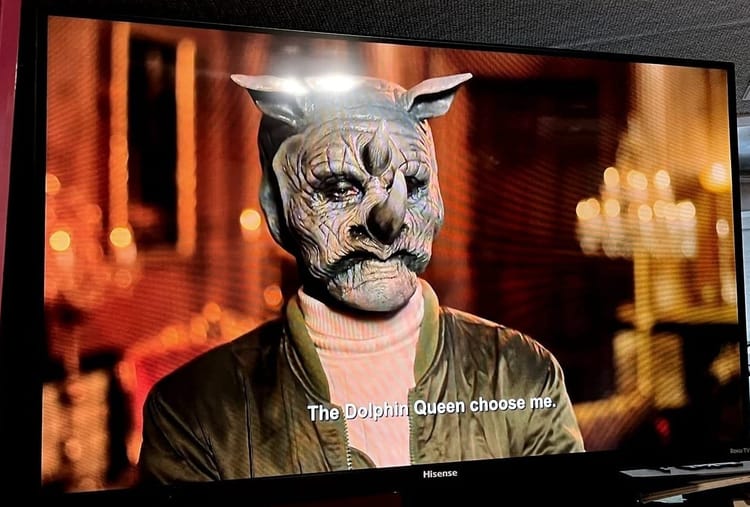
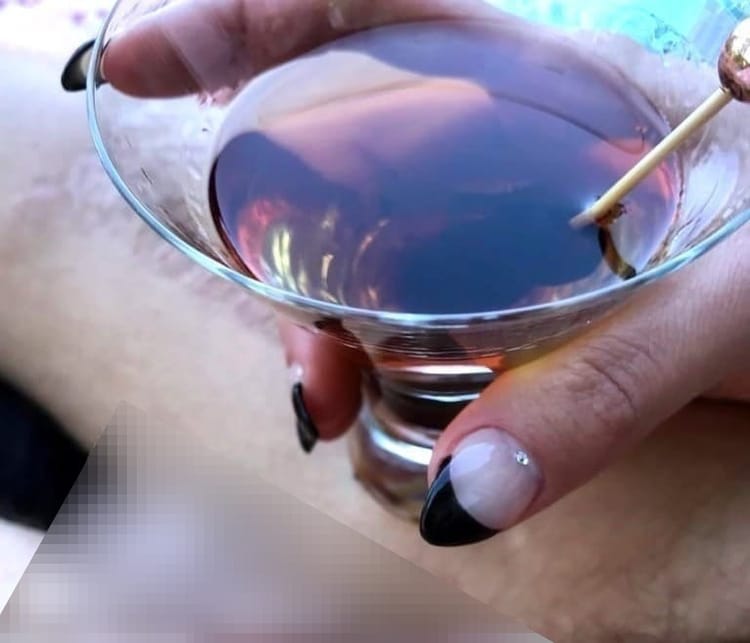
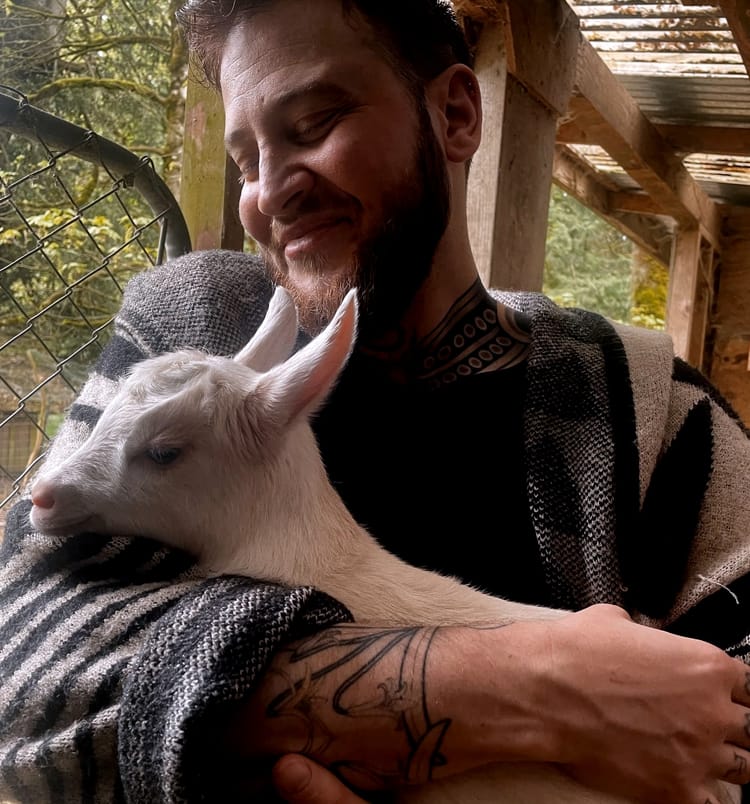
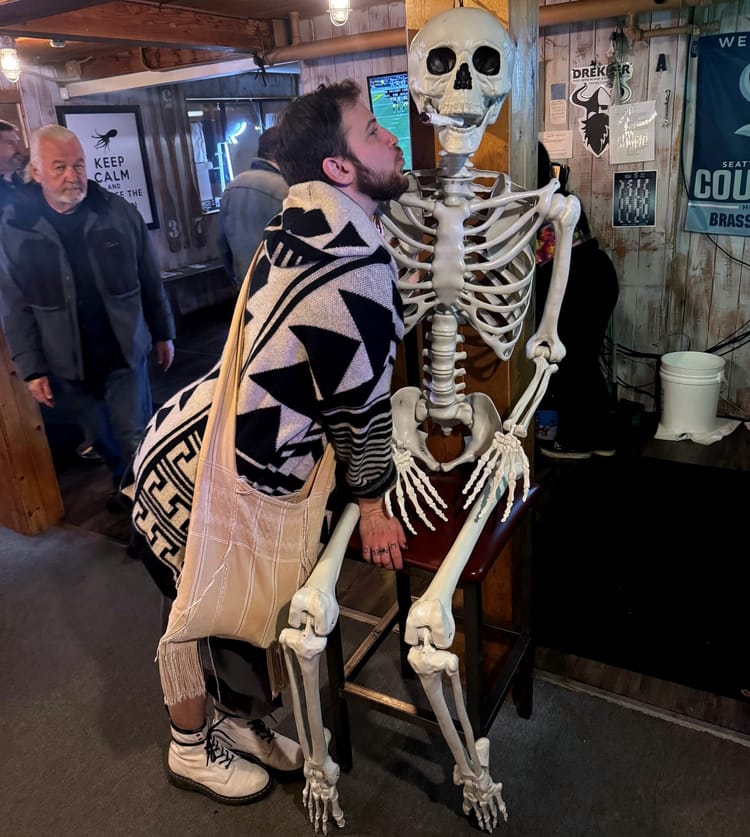
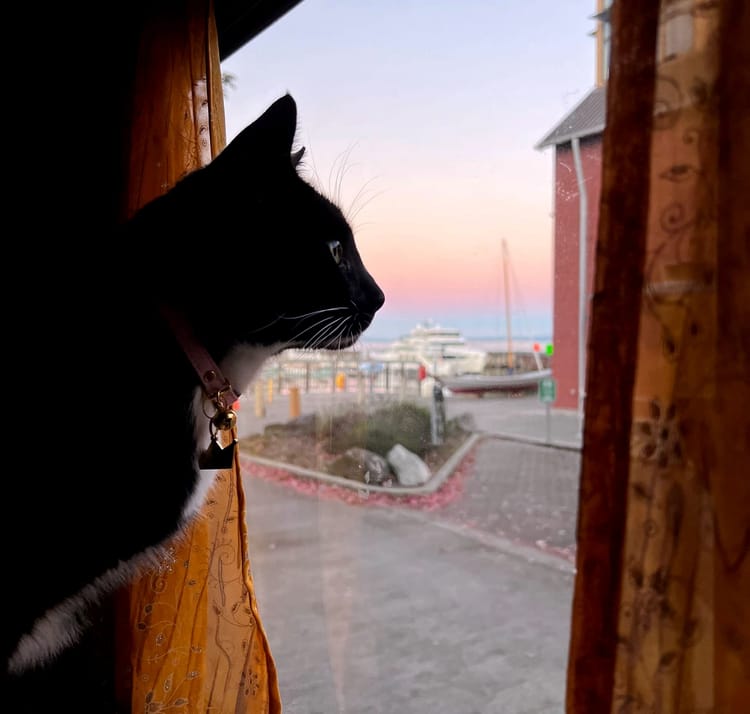
Member discussion